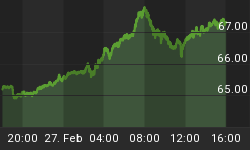When I turned on CNBC this morning, two subjects dominated the headlines. First, CPI came in a bit hotter than expected (not good for REITs or anything else for that matter). Second, Novastar Financial (NFI) was down over 30% in pre-market trading after reporting significant losses that stemmed primarily from nearly $45 million in accounting charges the company recorded anticipating many borrowers won't be able to repay their mortgages. The report goes on to say that the company was in jeopardy of not being able to pay dividends going forward. (NFI closed down over 40% by the end of trading today.)
While individual stock crashes in any sector are certainly not all that unusual or particularly noteworthy, NFI's fall from grace raises a legitimate concern on the part of REIT investors - How safe is their dividend yield? Most investors don't realize just how volatile and economically sensitive REIT dividends can be.
NAREIT (National Association of Real Estate Investment Trusts) provides dividend history for REITs going back to 1988. In that span, our economy has seen two notable recessions: 1990 - 1991 and 2001-2002. In both of these recessions, the average REIT yield fell by at least 4.5%. In 1989, REITs yielded 7.1% and by 1991, they were yielding a paltry 2.6%. In 2000, REITs were yielding 6.8% and by 2002, their yields dropped clear down to 1.9%.
Currently, REITs yields are in the neighborhood of 3.5%. It doesn't take a Ph.D in Math to recognize that yields don't have 4+% to fall. If the economy slips into a recession, it is hard to say just how negative the impact will be on REIT yields. I don't think it is a stretch to say that yields might approach 1%. (BTW, In each recession, the drop in yields was primarily a factor of lower dividends, not price appreciation. Today, the reduced yields is a product of rising prices.)
Here is the history of REIT yields according to NAREIT
1988 - 7.5%
1989 - 7.1%
1990 - 5.4%
1991 - 2.6%
1992 - 5.4%
1993 - 7.0%
1994 - 6.0%
1995 - 6.8%
1996 - 4.9%
1997 - 7.4%
1998 - 8.0%
1999 - 7.7%
2000 - 6.8%
2001 - 3.8%
2002 - 1.9%
2003 - 5.2%
2004 - 5.8%
2005 - 5.0%
2006 - 4.2%
2007 - 3.5% (1)
(1) Figure is estimated by using prior year's yield and discounted for price appreciation in the Dow Jones REIT index during 2006.















